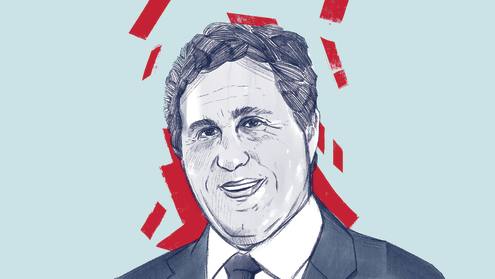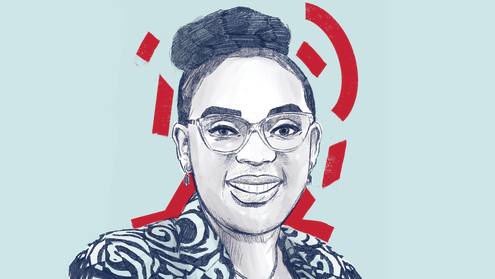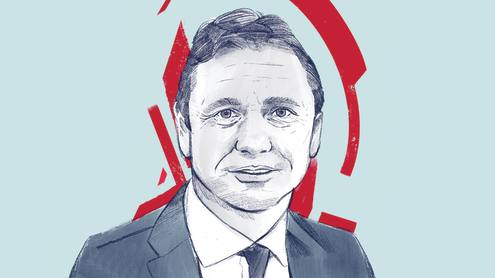The English-language media have almost merged into one in their coverage of a 'collapsing' European single currency, and the infection is spreading across the world. Such stories may be useful to apply pressure on European governments or, alternatively, to divert attention away from the dollar and sterling economies. But it is also useful to compare them with reality.
The eurozone does not deserve the title role in the crisis – it has not triggered or caused the crisis more than, for example, the US, the rest of the EU or Japan. Instead, this should rightly be called a debt crisis, and those debts are widespread. This is about general financial leverage and living beyond one’s means both in the state and in the private sector. These deficits pull down the entire economy through distrust, as consumer sentiment and bank balance sheets are undermined.
But there is also a reason to talk about a democracy crisis. The decision-making process in Europe is more complex than that in the US. But even so, decisions have been made in the past year in Europe, and especially in the eurozone, which force deficits and the debt burden to be reduced and the economy rebalanced. However, it is true that Europe suffers most from the current distrust, and governments must convince both markets and the European Central Bank of their solvency.
No rights without taxation
The price of living on credit in the eurozone is an interest cost of approximately 3% of gross domestic product, and the cost of refinancing debts is becoming more expensive as trust is lost. It should not be the state’s business to take on this scale of interest rate risk and debt burden. Public services and maintenance represent a steady stream of costs that should be covered out of tax revenues.
The additional pressures created by a financial crisis should be covered from reserves, not by the increasing indebtedness allowed by the loose budgetary rules and even looser behaviour in Europe. The public cost patterns that have already made the debt grow should not be financed by expanding the money supply in the way practised in countries that do not have fully independent central banking. Similarly, the automatic increase in expenditure that has been programmed in Europe to separate citizens from economic reality is not a sustainable solution, as the balance sheets of many countries confirm.
Our market is in Europe, and with the help of exports we dragged ourselves out of the crisis and back to economic growth. Our banks are in good condition, but investments and lending rates also still depend on Europe
Democracy should be evaluated critically and supplemented with an independent expert assessment if it could give birth to a suicidal cost level and debt burden and if the correction of mistakes is so painful. Amenities without charge, tax derogations, indiscriminate welfare services, restrictions on competition or indexable salaries have been required from, and supplied by, politicians. 'Rights', 'interests' and social standards that have been fixed in regulations are not in compliance with the taxpayers’ contribution. No decisions are made to abolish unviable institutions, schools, hospitals or rescued companies.
A state is nothing else than the way citizens organise themselves with the aim of doing collectively with their own money those things that cannot be efficiently done by each citizen individually. Citizens as a whole cannot have any rights that exceed their total contribution, but this contribution can of course be better distributed.
Estonia’s perspective
How does the European debt crisis concern Estonia and its choices? Being free from debt bondage, our state does not depend on the yield of the bond market and the yield does not depend on us. However, Europe remains our home and its well-being, even if there is mistrust in its solidarity, is for us a defining issue of security, geopolitical status and economic environment.
Our government has always spoken about the debts in Europe and we have never claimed that eurozone accession would make the future cloudless. We have said that regardless of the financial crisis, the euro is the right choice for a small country as well as for Europe.
Our market is in Europe, and with the help of exports we dragged ourselves out of the crisis and back to economic growth. Our banks are in good condition, but investments and lending rates also still depend on Europe. And while the two-notch increase in our sovereign rating in mid-2011 was exceptional, we remain vulnerable, under-rated and under special scrutiny along with the eurozone.
Our government has always spoken about the debts in Europe and we have never claimed that eurozone accession would make the future cloudless. We have said that regardless of the financial crisis, the euro is the right choice for a small country as well as for Europe.
In future, nothing will be guaranteed for us, just as nothing has ever been guaranteed in the past. Only a few countries are able to maintain financial discipline and the political agenda always contains ideas about big borrowing for the sake of 'development'. Only 10 years ago, Estonia's minister of finance had to remind even the right-wing mayor of Tallinn that the magnificent 'reconditioning' of the capital with a loan would not work.
Ageing societies in Estonia and Europe have to admit that before spending, the state has to earn and save at least part of its future expenditures. The state has to remain within limits both financially and in terms of its functions. During elections, politicians must respond correctly to demands – offering not just new policies and initiatives, but also basic truths that can ensure the future welfare of the nation.
Jurgen Ligi is Estonia's finance minister












